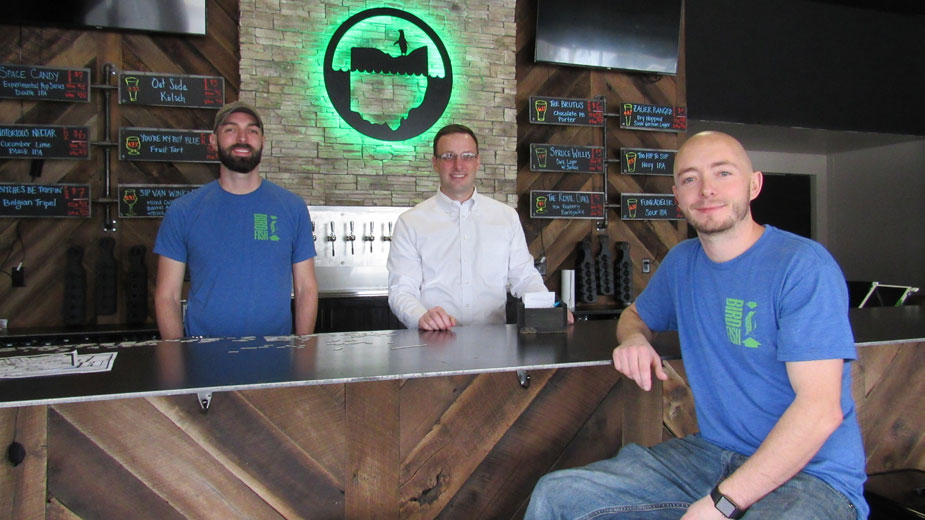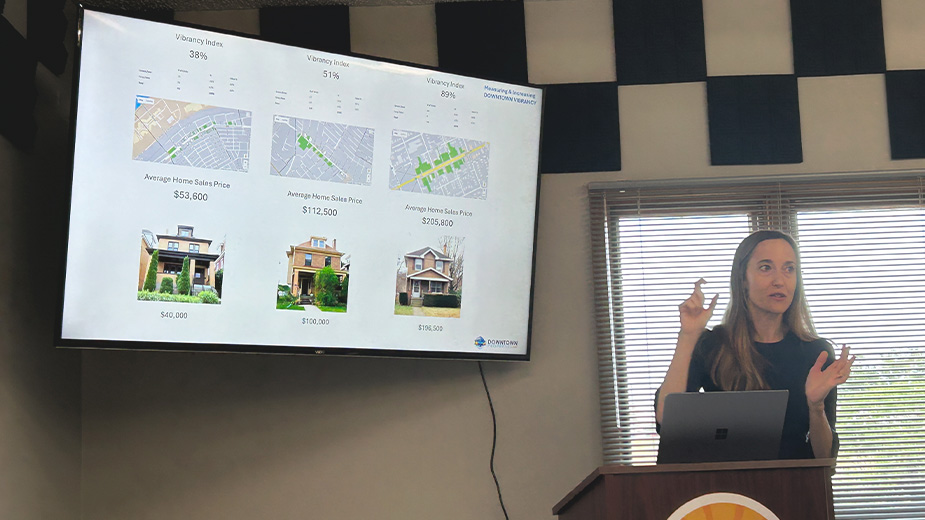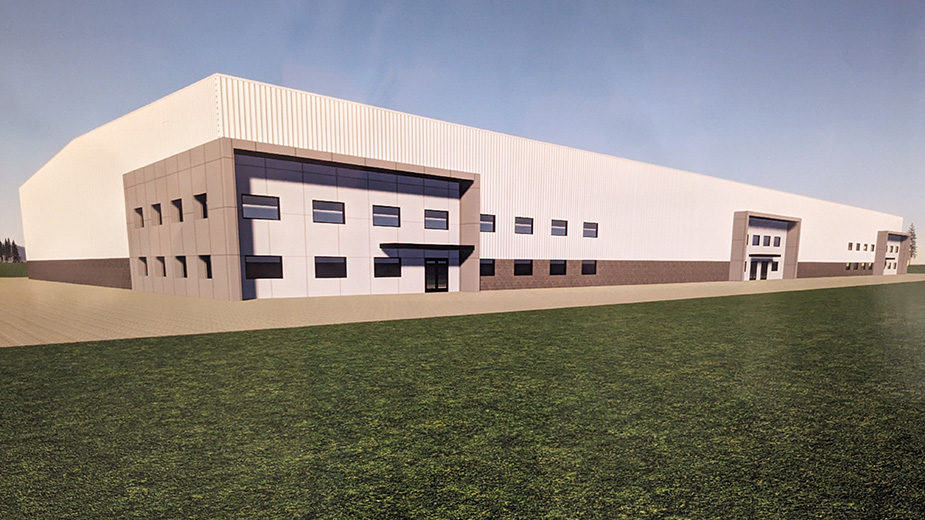Craft Beer Brews Transformation In Small Towns
YOUNGSTOWN, Ohio — For as long as mail carriers, accountants and psychiatrists needed a place to gather for a pint, pubs and taverns have provided a haven “where everybody knows your name.”
Today that haven is often the taproom of craft breweries established by young entrepreneurs whose ingenuity and determination is bringing new vibrancy that’s transforming small towns and cities across Ohio.
It’s a transformation driven by more people choosing to eat and drink locally sourced products, wanting to know where their food comes from and supporting local agriculture, says Justin Hemminger, deputy director of the Ohio Craft Brewers Association.
“We’re seeing a statewide trend toward small towns and neighborhoods having their own unique craft breweries,” he says. “And the craft breweries are becoming hubs of those communities.”
Take, for instance, Modern Methods Brewing Co. in Warren.
In 2016, the startup plan was to mirror the success of regional breweries that distributed to various states, says owner Adam Keck.
But by the time Modern Methods opened in April 2018, “That all changed,” he says, as drinkers prefer local beers over those from out-of-state. So Keck scaled back on distribution and invested in his taproom and the community. Other craft breweries in the region are following a similar strategy.
Numbers Brewing Co. in Lisbon has become “the working- class brewery,” says Brock Beatty, who co-owns the business with Jeramy DeBord.
When Beatty isn’t working his day job as a production supervisor at a titanium mill, he usually can be found in blue jeans, work boots and a hoodie at the brewery. To maintain consistent quality, Beatty sticks with staple types of beer that include IPAs, a blond ale, porter and stout, he says.
“Lisbon is a Pabst Blue Ribbon town and we’ve been able to be very successful,” Beatty says. “Good craft breweries are a destination. Craft-beer lovers will seek out a good craft beer.”
Numbers, opened in December 2015, saw a 25% year-to-year increase in its first year. In 2018, contract brewing increased business 35% over 2017, he says.
Last year, Numbers invested some $400,000 to expand its taproom and parking lot and add a patio and kitchen. The company is also building a 60-by-40-foot addition to its brew house with a 15-barrel system that Beatty hopes to have operating by April. It will allow Numbers to double its 2018 production “pretty easily,” Beatty says.
While regular taproom customers make up most of the business, distribution to 30 regular customers has driven growth at Numbers, Beatty says. In January, it received its license to distribute in West Virginia, where demand for the beer is strong, he says.
“We’d only been there for two weeks and sold almost 11 barrels of beer,” he says. “It’s way bigger than we anticipated.”
Maintaining product consistency while accommodating expansion is a full-time job that requires at least one member of management with a “sound business mind,” or else the quality will suffer, he says.
Numbers employs nine, which allows Beatty and DeBord to focus on running the business.
“A lot of people get into brewing as a hobby and they continue to treat it as a hobby once they’re open,” he says. “You just can’t do that.”
Doing more business research and hiring a team are two things Ken Blair would have done differently. Blair, former co-owner of the Rust Belt Brewing Co., says he ended up “trying to do too much” by running the brewery while working full-time as an officer with the Youngstown Police Department.
“I just got pulled into too many directions,” Blair says. “Brewing itself takes so much of your time. But you have to get out there and push your brand. If you don’t have someone to do that, it gets into other areas and takes away from family time or the quality of brewing.”
The demands took a toll on Blair’s product quality as well as his personal and family life, he says. And while he is thinking about trying again – with a smaller business model – his focus is on his time at work and his kids.
As for the future of the local and regional craft beer industry, Blair expects it will continue to gain market share among those drinkers who prefer domestic light beers. Having a cluster of breweries concentrated in one area creates an opportunity for tourism, he adds, because visitors tour the breweries for a day or two as they do with wine trails.
“They make a weekend out of it. They go to tastings. They buy the merchandise,” he says. “All that will play into my next business model; so hopefully things progress.”
Along with buying the beer, communities invest in the industry by hosting office parties, holiday gatherings and other events at the breweries, notes the Ohio Craft Brewers Association’s Hemminger. In turn, the breweries put those dollars back into the community by contracting with local farms, building contractors and business services.
“Local breweries are still local businesses themselves,” Hemminger says. “Many of the purchasing decisions they make are locally sourced. That’s part of the extended economic impact of having a craft brewery in your town.”
Birdfish Brewing Co. in Columbiana buys some of its hops from Lamppost Farm there and Knucklehead Hop Farm in Leetonia, as well as fruit from Winkel Berry Farm in North Lima and Zaney Pearl Farm in Columbiana.
In January, Birdfish committed to buying 50,000 pounds of barley from Yarian Quality Malts to use this year, says co-owner Josh Dunn. Nine of the 12 beers on tap at Birdfish are brewed with Yarian barley.
“So 70% of the barley that we’ll use in our brewing operations in 2019 will be sourced within five miles of the brewery,” Dunn says.
In November 2015, Dunn opened Birdfish at 16 S. Main St. with his brother, Jon, their cousin, Jared Channell, and brother-in-law, Greg Snyder. Since opening the second location at 140 E. Park Ave. in December, they have seen more foot traffic from out-of-town visitors as well as residents out shopping, Jon Dunn says.
Pinball and Skee-Ball machines make the new location – called Down Low – family-friendly to accommodate the younger families as well as couples moving into the area and buying houses, Dunn says.
“Columbiana is actually a growing population,” Dunn says. “We saw that as more of an opportunity long-term.”
The $350,000 expansion includes a new seven-barrel system that, along with the original site on Main Street, will produce up to 800 barrels of beer this year, up from some 500 produced last year.
“Our steady growth has been good and we’re not trying to grow too fast, take too many risks,” Josh Dunn says. “We’re working to be part of the community and gain community support, and trying to do fundraisers to raise money for certain groups around town.”
For Keck of Modern Methods, creating a community space has led to him hosting special events, such as the Smarts Stories monthly storytelling event in collaboration with Students Motivated by the Arts of Youngstown, as well as some philanthropic efforts. For instance, a $350 donation to Earth Angel Farm will help the nonprofit Farmhouse 908 project to serve veterans suffering from PTSD and others living with disabilities. The project aligns with Keck’s mission to support community success. Such efforts pay for themselves by bringing attention and awareness to the brewery, he says.
“You can’t put a price tag on earning the trust of a nonprofit organization,” he says. “People care about that. And you get automatic credibility because there’s that connection.”
The community’s connection to the brewery can help economic development efforts in the city as well.
During the holidays, Keck spoke with people from North Carolina, New York and Seattle who were visiting relatives. They complimented the “cool, urban vibe” of Warren, which led to conversations about affordable housing, employment and entrepreneurship opportunities, he says.
“There’s a feeling from them that it wouldn’t be so bad to move closer to home and look for jobs here,” he says. “Maybe you won’t have the same job or income that you’ll have in the bigger city, but you can settle down in this area and start a business or work remotely. And there’s cool stuff for you to do.”
Copyright 2024 The Business Journal, Youngstown, Ohio.



